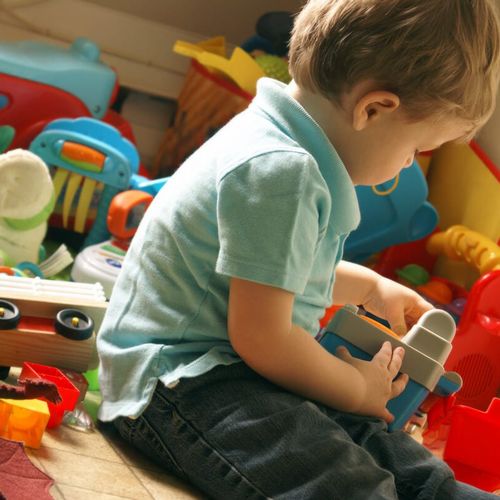By “The Abundant Life Broker” with the Confidence of over 78,000 transactions
What do I know about crashes? Well for starters I haven’t just lived through the worst one in history. I’ve sold more REO properties than any single broker on earth! You see, when the last crash started I had already been an experienced auctioneer and real estate broker for nearly 20 years. Most of the work I did prior to 2007 was in the southeastern region of the U.S. After negotiating a collaboration with a massive auction company out of Irvine, Ca, I became licensed in over 30 states and for seven years I sold thousands of houses a week (sometimes doing two sales a day)! It was a crazy time, but it gave me an insider view of a large part of the crash and why I believe there is not one around the corner. The Great Recession would become its most popular nickname, but here’s some of what I learned, and how it differs from the current market.
- Big Bank Greed. Before the first crash, or mortgage debacle, as I like to call it, all of the major worldwide banks had been originating, packaging and selling mortgages for 125% of their current value for over ten years! Stop and think about what you just read…banks were giving people money to buy houses, furniture, and dream vacations, all in one easy, low interest rate payment. It was doomed from the beginning, and once Wall Street got a taste of the greed pie, they could not get enough of it. The banks continued to pour money into mortgage companies that sold mortgages to people whether they qualified for them or not. The result? Thousands of lives were ruined. Several huge hedge funds went under and thousands of small town banks would eventually pay the price of bankruptcy, while NO ONE from any of the originating banks served a day in jail. In fact, they got bonuses for pulling themselves out of the hole they had helped to create.
- Inventory Surplus. I’ve been around long enough to know what it was like when we had 8, 9, 12 months’ worth of standing house inventory. Stop and think about what you just read again… the standing inventory count in the U.S. today is less than 20 days! Not weeks – days! Most of today’s real estate professionals have no idea what it’s like to sell a home in a neighborhood with 8 more homes just like it up and down the same street. Prior to the first real estate crash, we were in the 90’s building boom. I knew companies with $19 million, $35 million, $100 million dollars’ worth of inventory when the crash started. These companies could not have sold all of their inventory even if the crash had not happened!
- Libor Interest-Only Products. I remember the first investment home I bought with the Libor indexed interest only loan product. I remember asking my friend (and then super banker) the question, “You mean all I have to pay is the interest?” He blinked with a smile and said, ‘Yep!” to which I said out loud, “Who’s going to end up paying for this ridiculous idea?” Then, I immediately implemented a strict company policy on all of the investment properties we were buying; when the P & I (principle and interest amount) was equal to 80% of the monthly rental rate, we refinanced out of the Libor product into a safe, proven conventional instrument. It was that decision that saved our portfolio, and we still own most of those houses to this day.
- Consumer Fear. All markets thrive on confidence in the stability of that market. Prior to the Great Recession, most of the world believed in the American mortgage and housing system. But during this time, and largely due to mass media’s portrayal of a problem we could not overcome, that belief system deteriorated. I sat in many meetings with bankers and investors saying, “Just hold on and do not panic. Real estate values will return”. I even fired a CPA back then because he didn’t believe home prices would ever return to the value they were before the crash. If you take nothing from this advice, hear this quote from Baron Rothschild. In 1560, he said, “The time to buy is when there’s blood in the streets, even if the blood is your own”. Nearly all of the bankers and investors I met with pre, during, and directly after the Great Recession and market debacle are in other industries now and I am still in real estate. I’m still growing my portfolio, and still encouraging the young and the old to buy, sell and, more importantly, keep real estate (especially in America).
- Current Lack Of Inventory. There’s one more big reason why we are not headed to a “crash”, regardless of who is in the White House. Even when the interest rate rises (and it will), there still remains the glaring truth that we do not have enough single family residences for our current population. We didn’t keep up with the birth rate for ten years! Think about all the small town banks that backed spec builds before the crash. Most of them went out of business or barely survived the aftermath of the mortgage debacle. Then after the crash, nearly all of them refused to lend to the builders that had also survived. Now, add up all the builders that didn’t survive. Lastly, look at the labor force which was depleted because there was no more work. All of these factors decimated the building industry for more than a decade, but families did not stop growing. Today, we see migratory patterns of people leaving mismanaged states, and high taxes pouring into more affordable areas like the central and southeastern states.
In conclusion, I act with the same advice I give. I buy property. You should buy property. I get the asset and hold it. You should get the asset and hold on to it. Interest rates will go up this year, next year, whenever. Buy the property. Get the asset. When it comes to real estate, I remain confident because my experience tells me to be, and I am sharing that experience with you. Your focus on real estate should be based on your need, not on timing a market. If you do not own a home, then you should buy one as soon as possible. If you’re an empty nester who wants to downsize, now is the time to sell and maximize your return. If you are a family that has outgrown your starter home, buy your next home as soon as possible. Take advantage of maximizing your return on your first investment while utilizing the still low interest rate leverage. Sure, you might have to pay top dollar for the new home, and yes, the market will see a correction at some point, but you are gaining equity with every payment and may never see interest rates this low again. If your plan is to sell your home just to sit and wait on a “crash or correction of a lifetime”, in my very experienced opinion, you’re waiting for something that isn’t coming.
————————
Michael Carr is the Co-Founder & COO of BrandFace, LLC. He is also a real estate branding expert and international bestselling author. As America’s Top Selling Real Estate Auctioneer, he has sold billions of dollars in commercial and residential properties.







